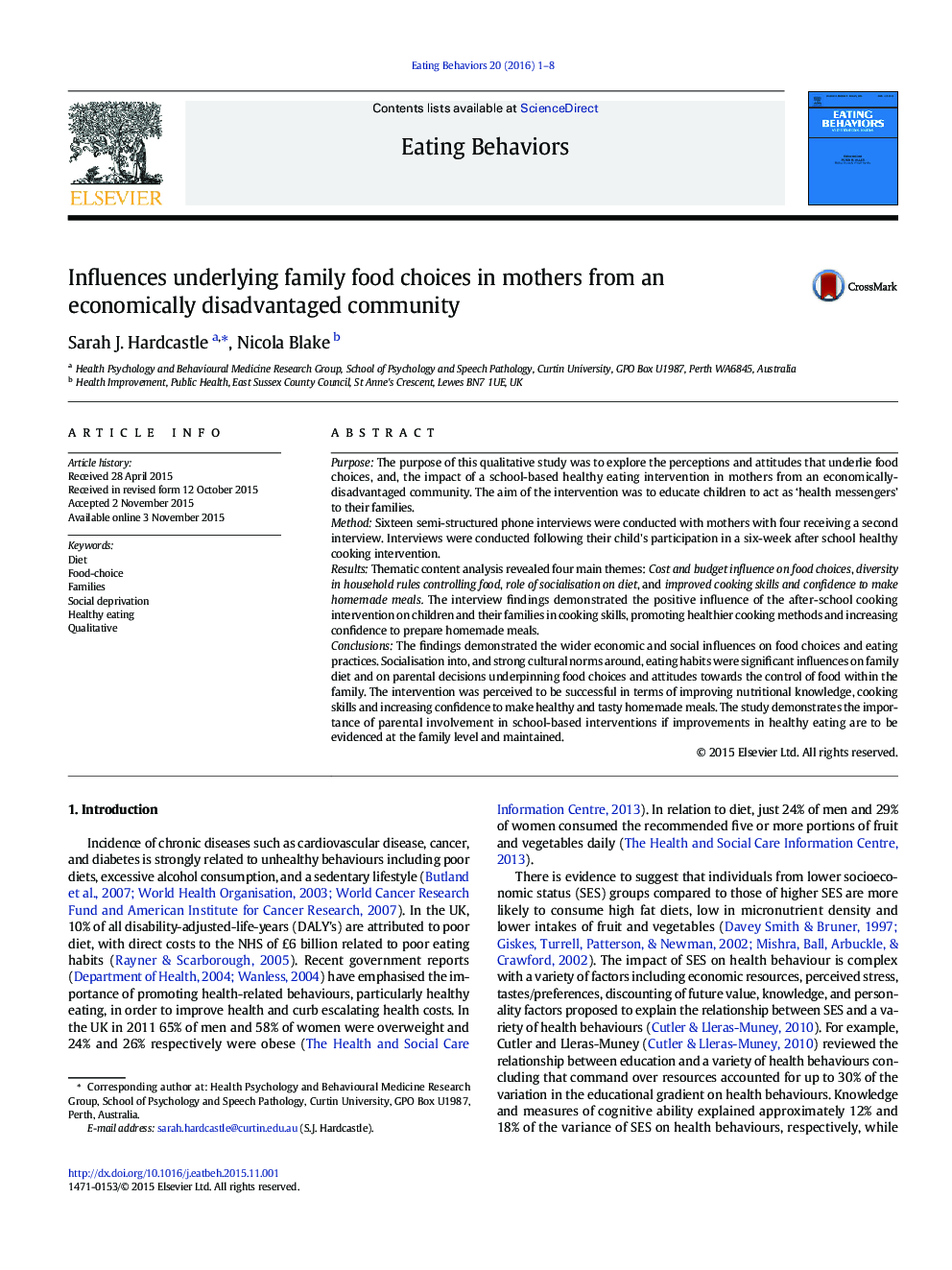| Article ID | Journal | Published Year | Pages | File Type |
|---|---|---|---|---|
| 906262 | Eating Behaviors | 2016 | 8 Pages |
•Food preferences within the family favoured the less healthy snacks.•Socialisation and past experiences significantly influence food choices.•Involvement of parents is important for changes to be evidenced at the family level.•After school interventions increase confidence to make homemade and healthy meals.•After school interventions may improve food literacy skills•Active and experiential components to healthy eating intervention are important to change perceptions about food
PurposeThe purpose of this qualitative study was to explore the perceptions and attitudes that underlie food choices, and, the impact of a school-based healthy eating intervention in mothers from an economically-disadvantaged community. The aim of the intervention was to educate children to act as ‘health messengers’ to their families.MethodSixteen semi-structured phone interviews were conducted with mothers with four receiving a second interview. Interviews were conducted following their child's participation in a six-week after school healthy cooking intervention.ResultsThematic content analysis revealed four main themes: Cost and budget influence on food choices, diversity in household rules controlling food, role of socialisation on diet, and improved cooking skills and confidence to make homemade meals. The interview findings demonstrated the positive influence of the after-school cooking intervention on children and their families in cooking skills, promoting healthier cooking methods and increasing confidence to prepare homemade meals.ConclusionsThe findings demonstrated the wider economic and social influences on food choices and eating practices. Socialisation into, and strong cultural norms around, eating habits were significant influences on family diet and on parental decisions underpinning food choices and attitudes towards the control of food within the family. The intervention was perceived to be successful in terms of improving nutritional knowledge, cooking skills and increasing confidence to make healthy and tasty homemade meals. The study demonstrates the importance of parental involvement in school-based interventions if improvements in healthy eating are to be evidenced at the family level and maintained.
